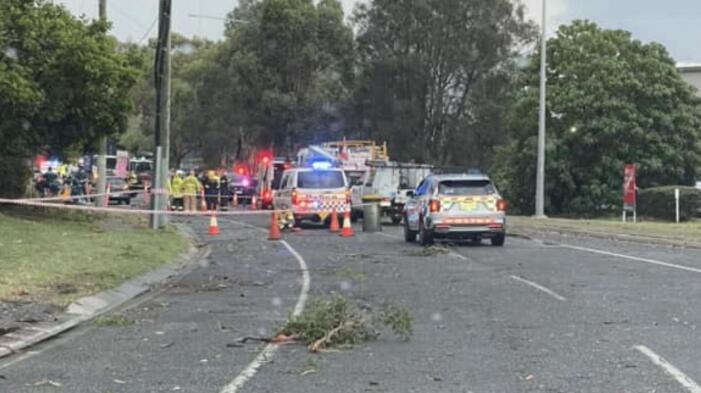The NSW government has launched a phone service offering mental health support to CALD communities in the state, an initiative that one expert believes should be replicated in other states.
This story is part of the SBS health and wellbeing initiative Mind Your Health. Click
here
to visit the portal, featuring digital stories, podcasts and videos in English and multiple languages.
While seeking professional help for mental health issues may seem normal for many, it’s not seen as an option for some culturally and linguistically diverse (CALD) communities.
A lack of awareness and
stigmatisation
can be prevalent within particular migrant groups who come from countries where such services are not readily available.
To address a gap in services, the NSW government has launched the Transcultural Mental Health Line.
It’s intended that the phone line will support people to “get the help they need”, with a specialist team of healthcare professionals ready to provide care and connect people with the appropriate services, according to NSW Minister for Mental Health Bronnie Taylor.
Catering to communities in up to 30 languages, including Arabic, Chinese, Greek, Korean, Vietnamese and Ukrainian, the service is available from Monday to Friday by calling 1800 648 911.
Finding the right words to express how individuals are feeling can be hard, let alone for people that might struggle with English, NSW Minister for Multiculturalism Mark Coure said.
“This new service makes mental health support more accessible, and will give people the peace of mind to speak freely in a language they are more comfortable with.”
‘Abnormal’ varies
Psychologist Donn Tantengco said while Australia adopts a Westernised biomedical and psychiatric approach to mental health issues, standards and attitudes vary from culture to culture.
“In my experience, what could be considered the major factors for persons of CALD backgrounds in seeking help for mental health, would be their home culture’s ideas, attitudes and beliefs,” he said.
Other cultures would have their own frameworks for observing, assessing and treating what is considered to be ‘abnormal’.
“Broadly speaking, ‘abnormal’ could be considered as observed phenomena that are atypical, maladaptive or disturbing based on the cultural norms. Therefore, what is ‘abnormal’ will vary from culture to culture.”
Shared experiences and language
Mr Tantengco, a Filipino-Australian, acknowledges that particular cultural and linguistic roots are an advantage when dealing with clients from the same background.
My background helps in terms of establishing initial rapport and trust.
“It may seem common sense, but it does ring true that it is easier to develop rapport with someone who has more similarities and shared experiences with you compared to someone who doesn’t.
“This is helped through potentially shared language, lived experiences, and agreed or mutual understanding of our roles in the therapeutic relationship relevant to cultural norms (eg, age difference or seniority, gaps in information or knowledge, etc).”
Help needed across states
Services like the Transcultural Mental Health Line, according to Mr Tantengco, will help de-stigmatise mental health and enrich the current approach of CALD communities towards assessment and treatment.
“Knowing that there is such a service is a potential protective factor for those struggling with mental health issues,” he said.
“I hope that at a clinical and cultural level, there can be cross-pollination between Western and non-Western approaches to assessing and treating those affected by mental health issues in the ever-diversifying Australian community.”
A resident of the ACT, Mr Tantengco said it was vital for such vast phone services – which are government-backed – to be offered in other states.
“Expansion of multicultural mental health support to other states would help persons of CALD backgrounds feel more reassured that they can access the help wherever they may be.
“It will also increase the awareness of understanding transcultural factors when it comes to mental health.”
The Australian government
provides information
on the organisations working in each state to provide mental health support.



Leave a Reply